
Bonn: A Harmony of History and Modernity by the Rhine
Nestled on the banks of the Rhine River, Bonn is a city where history meets modernity. Once the capital of West Germany, this charming city is rich in cultural heritage and offers a unique blend of old-world charm and contemporary attractions. Tourists are often drawn to Bonn for its beautiful architecture, scenic river views, and vibrant cultural scene. One of the city's key highlights is the birthplace of Ludwig van Beethoven. Visitors can tour the Beethoven House Museum to learn about the life and works of the famous composer. Music lovers will also delight in the annual Beethovenfest, which celebrates his legacy with concerts and events. Bonn is also home to numerous museums, including the Museum Mile, where you can explore art, history, and science. The Bonn Minster, one of Germany's oldest churches, is a must-visit for its stunning Romanesque architecture. For those who love nature, the Rheinaue Park offers expansive green spaces perfect for picnics and leisurely strolls along the river. The city’s vibrant market squares, such as the Münsterplatz and the Marktplatz, are perfect for sampling local delicacies and shopping for unique souvenirs. Bonn also boasts a range of dining options, from traditional German cuisine to international flavors. Whether you’re a history buff, a lover of the arts, or simply looking to relax by the beautiful Rhine River, Bonn has something to offer every traveler.
Local tips in Bonn
- Visit the Beethoven House early in the morning to avoid crowds.
- Purchase a Museum Mile ticket for access to multiple museums at a discounted rate.
- Try the local specialty, Rheinischer Sauerbraten, at a traditional German restaurant.
- Use the Bonn Regio WelcomeCard for unlimited public transport and discounts at major attractions.
- Take a river cruise on the Rhine for breathtaking views of the cityscape and surrounding countryside.
Bonn: A Harmony of History and Modernity by the Rhine
Nestled on the banks of the Rhine River, Bonn is a city where history meets modernity. Once the capital of West Germany, this charming city is rich in cultural heritage and offers a unique blend of old-world charm and contemporary attractions. Tourists are often drawn to Bonn for its beautiful architecture, scenic river views, and vibrant cultural scene. One of the city's key highlights is the birthplace of Ludwig van Beethoven. Visitors can tour the Beethoven House Museum to learn about the life and works of the famous composer. Music lovers will also delight in the annual Beethovenfest, which celebrates his legacy with concerts and events. Bonn is also home to numerous museums, including the Museum Mile, where you can explore art, history, and science. The Bonn Minster, one of Germany's oldest churches, is a must-visit for its stunning Romanesque architecture. For those who love nature, the Rheinaue Park offers expansive green spaces perfect for picnics and leisurely strolls along the river. The city’s vibrant market squares, such as the Münsterplatz and the Marktplatz, are perfect for sampling local delicacies and shopping for unique souvenirs. Bonn also boasts a range of dining options, from traditional German cuisine to international flavors. Whether you’re a history buff, a lover of the arts, or simply looking to relax by the beautiful Rhine River, Bonn has something to offer every traveler.
When is the best time to go to Bonn?
Iconic landmarks you can’t miss
Schloss Drachenburg
Discover Schloss Drachenburg, a fairytale castle on the Rhine, blending history, architecture, and stunning views for an unforgettable German experience in Königswinter.
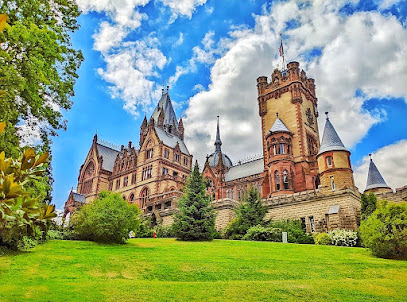
House of the History of the Federal Republic of Germany
Explore Germany's captivating post-war journey at the Haus der Geschichte in Bonn: a comprehensive museum experience showcasing political, social, and cultural evolution since 1945.
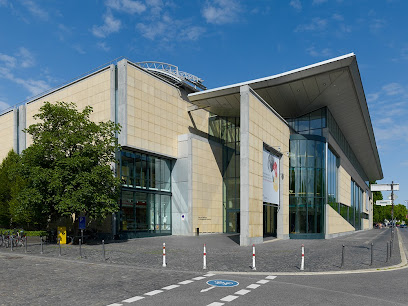
Beethoven-Haus Bonn
Explore the life and legacy of Ludwig van Beethoven at his birthplace in Bonn, a meticulously preserved house and museum showcasing original manuscripts, instruments, and personal artifacts.
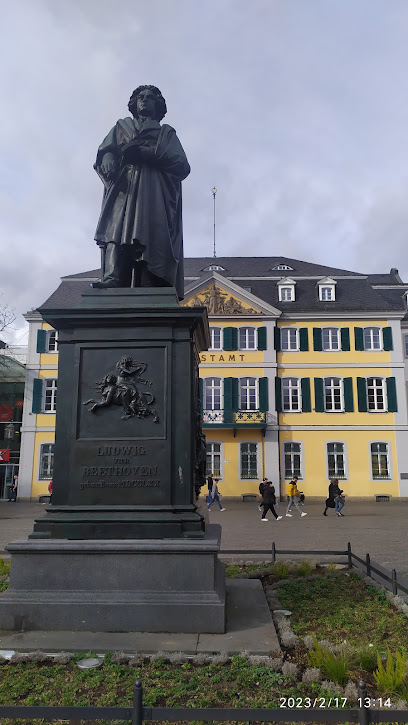
Museum Koenig Bonn
Explore the wonders of biodiversity at Museum Koenig Bonn, a leading natural history museum with captivating exhibits and a rich history, located in the heart of Bonn's Museumsmeile.
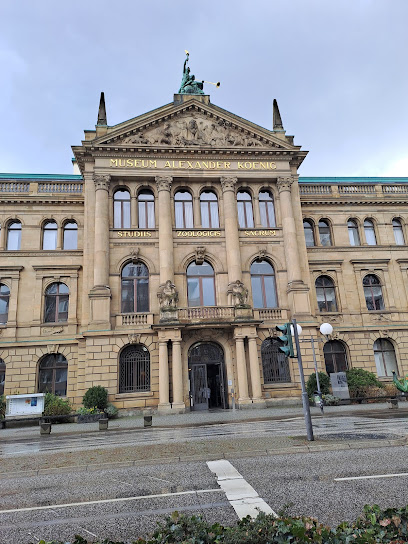
Botanical Garden, Bonn
Discover a world of plants at Bonn's Botanical Garden, a historic oasis offering themed gardens, tropical greenhouses, and a peaceful escape in the heart of the city, perfect for all ages.
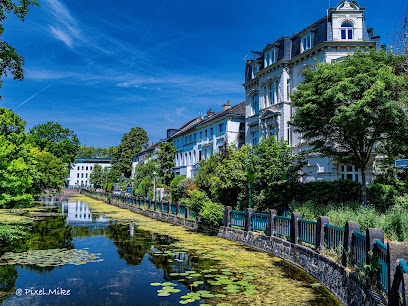
Stadtbefestigung Alter Zoll Bonn am Rhein
Discover Bonn's historic Alter Zoll: a captivating blend of ancient fortifications, scenic Rhine views, and tranquil gardens, offering a unique glimpse into the city's past and present.
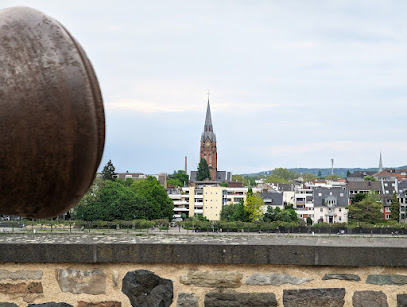
Kunst- und Ausstellungshalle der Bundesrepublik Deutschland
Explore world-class art, culture, and science at Bonn's Bundeskunsthalle, a dynamic exhibition space hosting diverse and engaging temporary exhibitions for all interests.
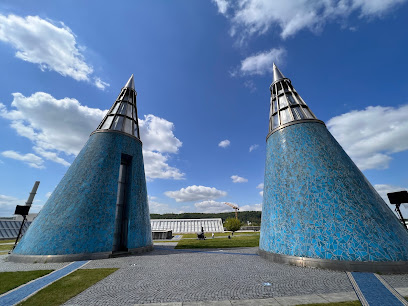
Waldau
Discover Bonn's natural side at Waldau: Explore wildlife, hike scenic trails, and enjoy family-friendly activities in this expansive woodland escape on Venusberg.
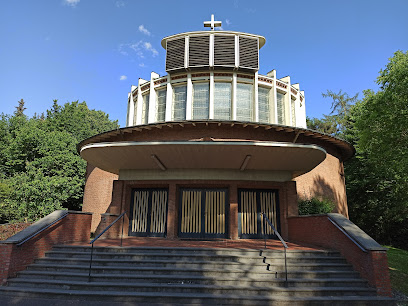
Beethoven-Denkmal
Visit the iconic Beethoven Monument in Bonn's Münsterplatz, a tribute to the legendary composer, surrounded by historic architecture and vibrant city life, offering a glimpse into Bonn's rich cultural heritage.
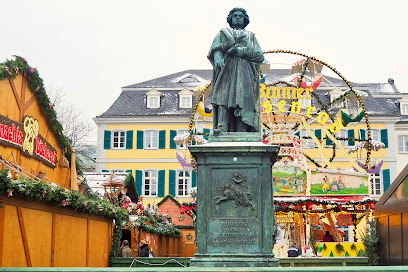
Art museum
Discover German Expressionism and post-war art at Kunstmuseum Bonn, a cultural landmark on Bonn's Museum Mile, offering a rich collection and engaging exhibitions for art enthusiasts.

Minster of St. Martin's
Discover the Bonn Minster, a magnificent Romanesque basilica in the heart of Bonn, Germany, showcasing centuries of history, art, and religious significance through its stunning architecture and sacred atmosphere.
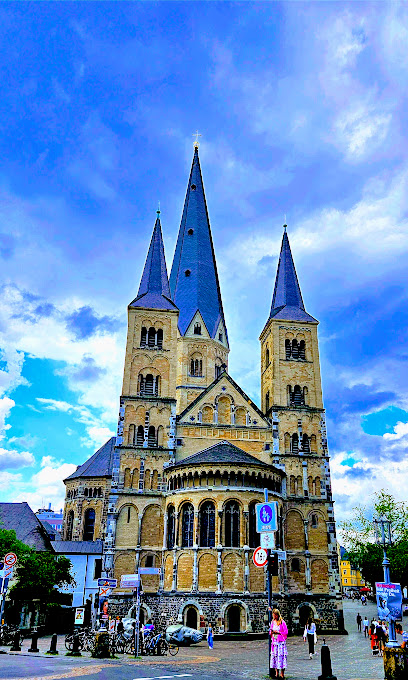
Deutsches Museum Bonn
Explore German science and technology since 1945 at Deutsches Museum Bonn: interactive exhibits, AI focus, and family fun in the heart of the Wissenschaftszentrum.
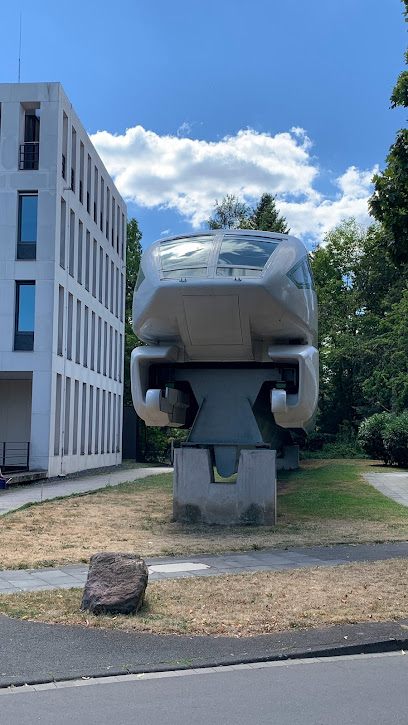
LVR-LandesMuseum Bonn
Explore 400,000 years of Rhineland history at the LVR-LandesMuseum Bonn, from Neanderthals to modern art, in one of Germany's oldest cultural institutions.
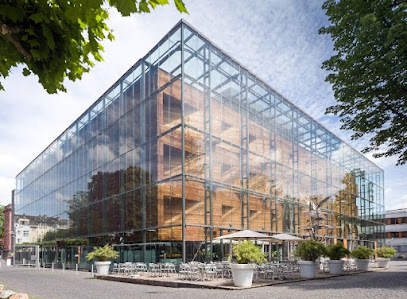
Poppelsdorf Palace
Discover Bonn's Baroque masterpiece: Poppelsdorf Palace, home to stunning architecture, serene botanical gardens, and a fascinating Mineralogical Museum, offering a tranquil escape.
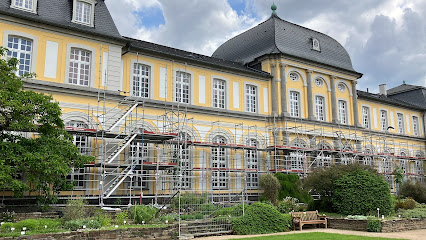
Kurfürstliches Schloss
Discover the rich historical tapestry of Bonn at Kurfürstliches Schloss, a stunning example of Baroque architecture and royal heritage, now home to the prestigious University of Bonn.
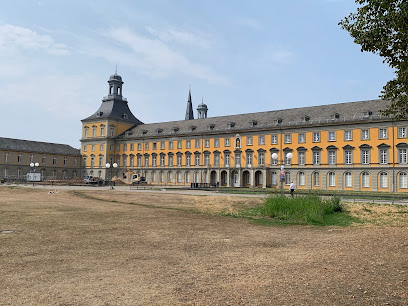
Unmissable attractions to see
Cologne Cathedral
Discover the grandeur of Cologne Cathedral, a UNESCO World Heritage Site, showcasing Gothic architecture, stunning stained glass, and breathtaking views.
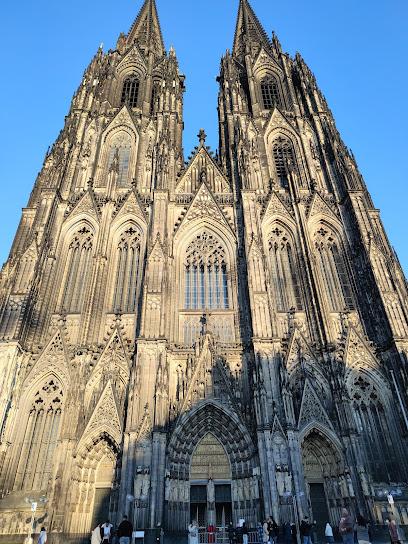
Lindt Chocolate Museum
Experience the delicious world of chocolate at the Lindt Chocolate Museum in Cologne, where history and taste come together in a delightful journey.
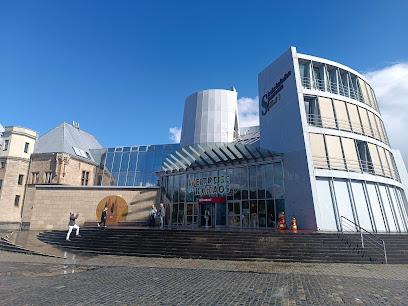
Lanxess Arena
Discover the vibrant world of entertainment at Lanxess Arena, Cologne's premier venue for concerts, sports, and unforgettable events.
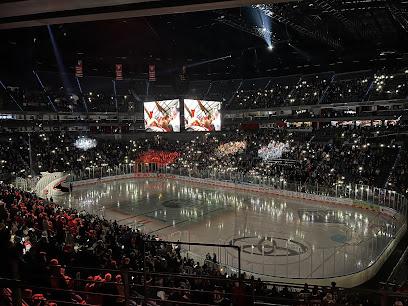
Cologne Zoological Garden
Discover the enchanting world of wildlife at Cologne Zoological Garden, a top tourist attraction featuring diverse species and immersive exhibits in the heart of Germany.
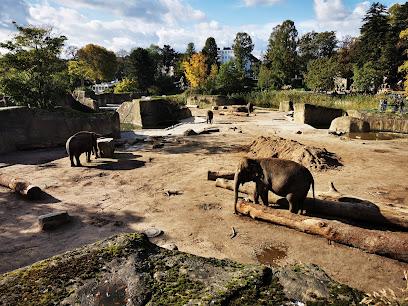
Cologne Fair
Explore the Cologne Fair, a leading exhibition and trade center where culture and innovation meet in the heart of Cologne, Germany.
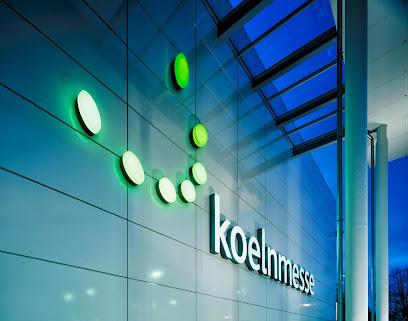
Schloss Drachenburg
Explore the majestic Schloss Drachenburg, a stunning 19th-century castle in Königswinter, offering breathtaking views, rich history, and beautiful gardens.
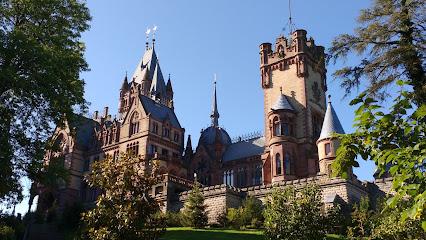
Freizeitpark Rheinaue
Explore the lush landscapes and recreational wonders of Freizeitpark Rheinaue, Bonn's premier state park for relaxation and outdoor fun.
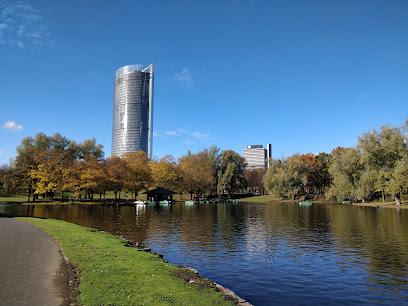
House of the History of the Federal Republic of Germany
Discover Germany's post-war history at the House of the History of the Federal Republic of Germany in Bonn, where the past meets the present.
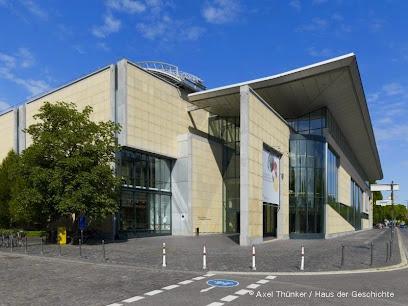
Cinedom
Discover Cinedom in Cologne – the ultimate destination for movie lovers, featuring cutting-edge technology and a diverse film selection in a vibrant setting.
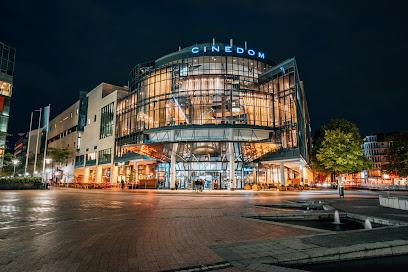
Burg Castle
Explore the enchanting Burg Castle in Solingen, a historic landmark offering stunning views, hiking trails, and a glimpse into medieval life.
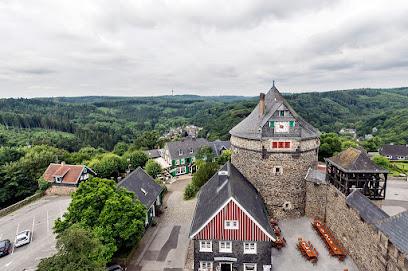
Drachenfels Railway
Embark on a scenic journey aboard the Drachenfels Railway, exploring the stunning landscapes and historical treasures of the Siebengebirge region.
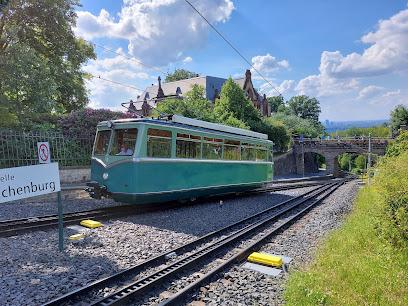
Schloss Benrath
Explore the majestic Schloss Benrath in Düsseldorf, a baroque masterpiece with beautiful gardens and rich history that's perfect for cultural enthusiasts.
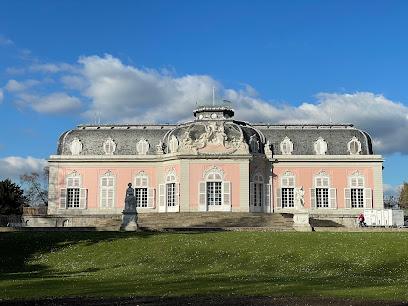
Erlebnisbauernhof Gertrudenhof
Experience the harmony of farm life at Erlebnisbauernhof Gertrudenhof in Hürth, a family-friendly destination with fresh produce and interactive animal encounters.
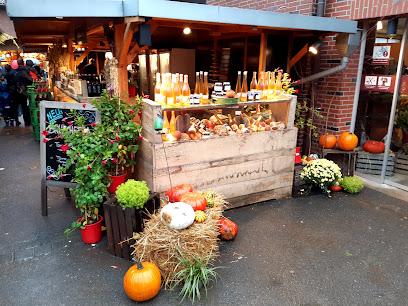
Museum Ludwig
Discover the vibrant world of modern art at Museum Ludwig, Cologne's premier destination for contemporary masterpieces and cultural experiences.
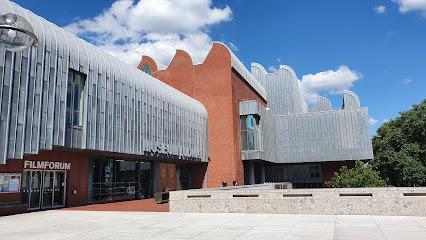
Odysseum
Explore interactive science exhibits and engage with technology at Odysseum, a must-visit museum in Cologne for families and curious minds.
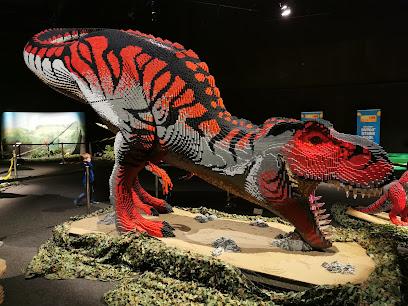
Essential places to dine
Tuscolo Munster view
Discover Tuscolo Munster in Bonn - where authentic Italian cuisine meets charming hospitality.
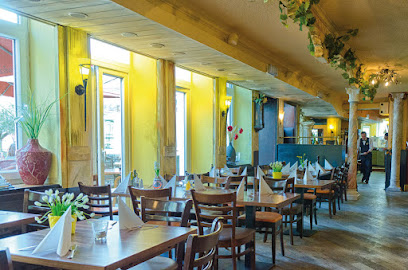
Elefant Bonn
Experience authentic German cuisine at Elefant Bonn, where traditional flavors meet modern dining in a charming atmosphere.
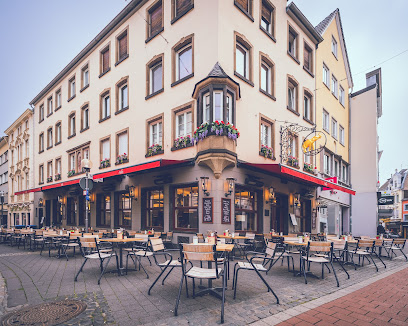
Café Spitz
Discover Café Spitz in Bonn: A charming restaurant offering delicious breakfasts and aromatic coffee in a cozy atmosphere.
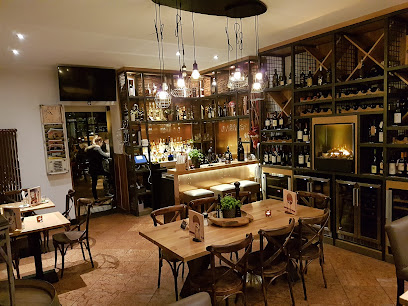
Burgermanufaktur am Frankenbad
Discover Burgermanufaktur am Frankenbad - where gourmet burgers meet fast food flair in Bonn's culinary scene.
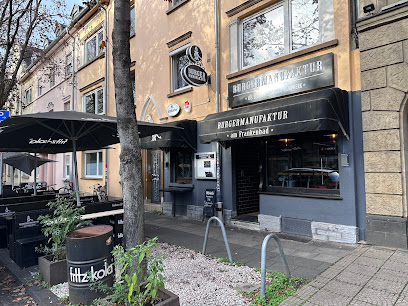
Sa Finca Tapa-Bar
Experience authentic Spanish cuisine at Sa Finca Tapa-Bar in Bonn – where tapas meet tradition in a vibrant Mediterranean setting.
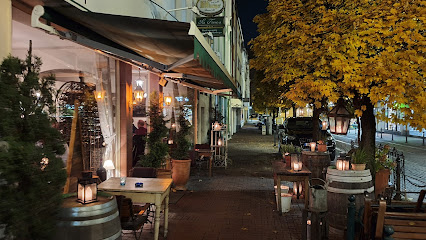
Restaurant Olive
Experience authentic Greek cuisine at Restaurant Olive in Bonn - where every meal feels like a celebration of flavors.
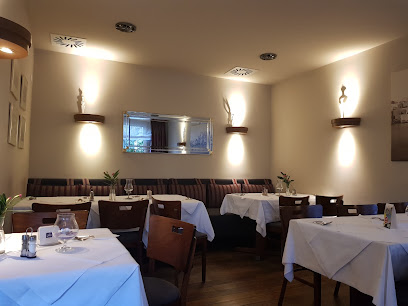
Gasthaus im Stiefel
Discover authentic German cuisine at Gasthaus im Stiefel in Bonn - where tradition meets taste in every dish.
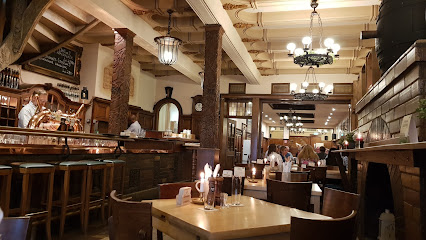
Wirtshaus Salvator
Discover authentic Bavarian flavors at Wirtshaus Salvator in Bonn—where tradition meets taste in every dish.
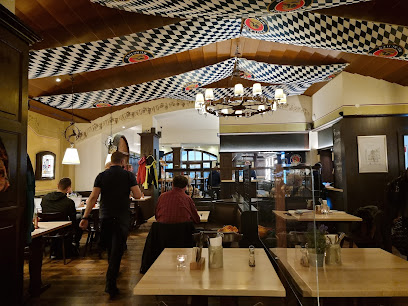
Sudhaus
Experience the best of Bonn's culinary scene at Sudhaus - where local flavors meet modern dining in an inviting atmosphere.
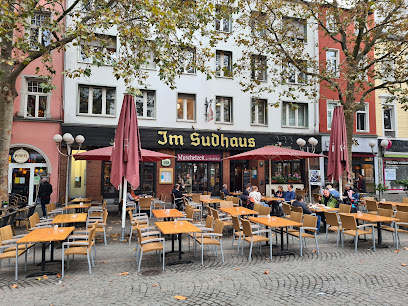
Em Höttche
Discover the essence of German cuisine at Em Höttche in Bonn – where tradition meets taste in a cozy setting.
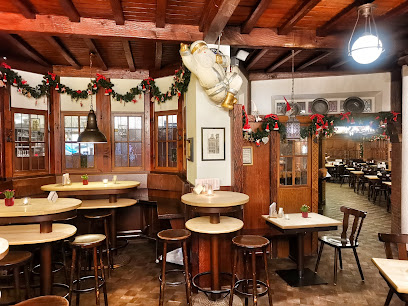
Cafe Giaccomo
Experience authentic Italian cuisine and exquisite cocktails at Cafe Giaccomo in Bonn – where every meal is a delightful journey.
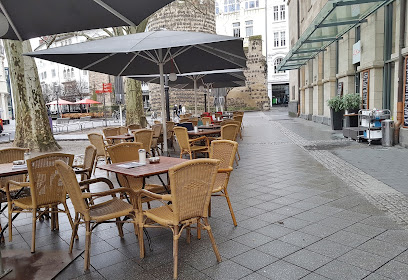
Mandu
Discover authentic Korean cuisine at Mandu in Bonn - a hidden gem offering delicious flavors at affordable prices.
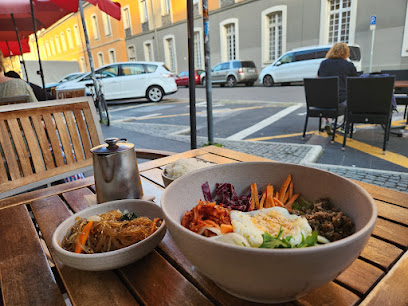
Shiraz Restaurant
Discover authentic Persian flavors at Shiraz Restaurant in Bonn – where every dish tells a story.
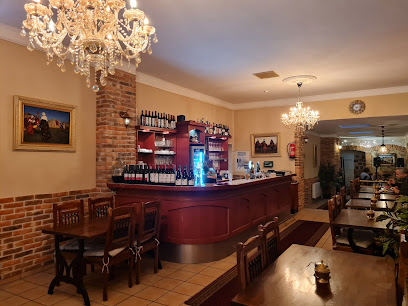
TAO Bar & Restaurant
Discover exquisite Pan Asian flavors at TAO Bar & Restaurant in Bonn - where culinary artistry meets vibrant nightlife.
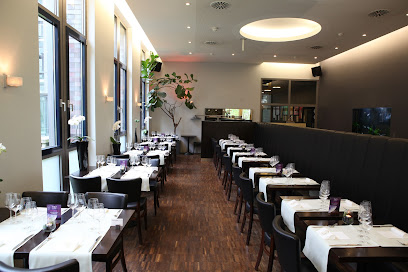
Remise Bonn
Experience exquisite German cuisine at Remise Bonn - where local flavors meet elegant dining in the heart of Bonn.
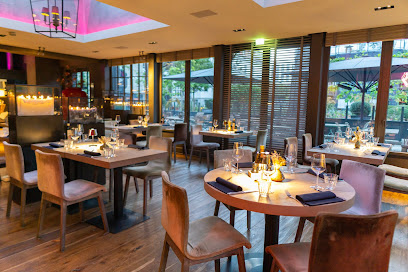
Markets, malls and hidden boutiques
GALERIA Bonn
Experience the ultimate shopping destination at GALERIA Bonn, where style meets variety in the heart of Germany's charming city.
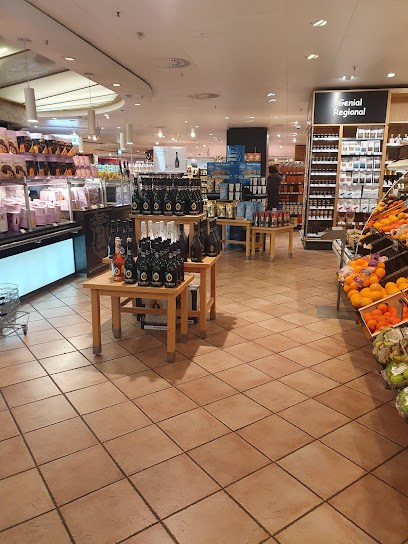
HARIBO Store
Discover the enchanting HARIBO Store in Bonn, a candy lover's paradise with unique gummy treats and delightful flavors waiting to be explored.
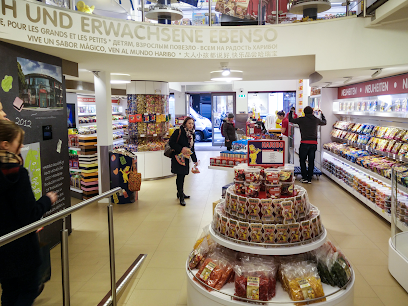
TK Maxx
Explore the eclectic offerings of TK Maxx in Bonn for unbeatable deals on fashion and home goods in a vibrant shopping atmosphere.
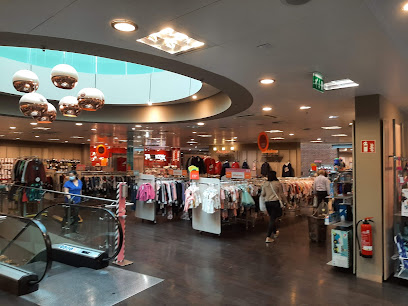
C&A
Discover stylish and affordable clothing for the whole family at C&A in Bonn, where fashion meets sustainability.
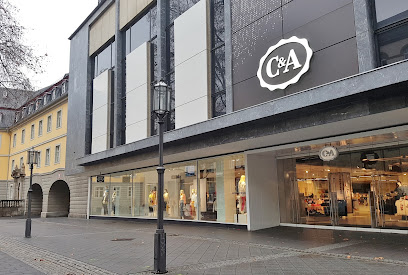
Primark
Discover affordable fashion at Primark Bonn, where style meets budget-friendly shopping in the heart of the city.
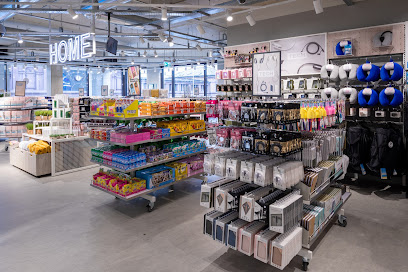
Bonner COMIC Laden GmbH
Explore a vast universe of comics at Bonner COMIC Laden in Bonn, where book lovers can find their next great read!
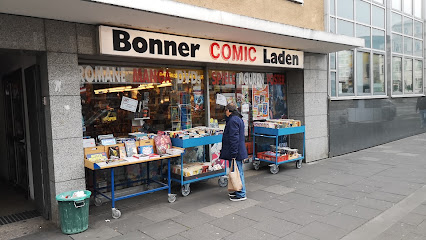
Globetrotter Bonn Re:Think Store
Explore the great outdoors with top-quality gear at the Globetrotter Bonn Re:Think Store, your ultimate destination for camping and outdoor adventures.
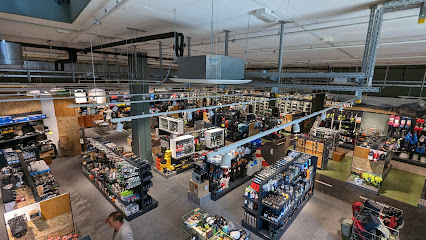
Nanu-Nana
Explore Nanu-Nana in Bonn for quirky gifts, delightful home goods, and a treasure trove of creative finds that celebrate the spirit of your travels.
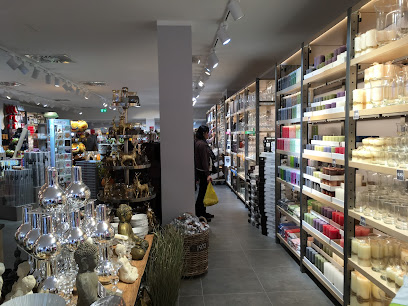
Manufactum Warenhaus
Explore Manufactum Warenhaus in Bonn for unique gifts, quality home goods, and a delightful shopping experience.
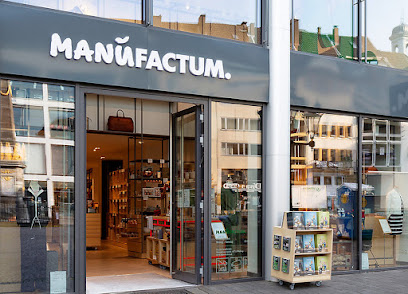
Lindt Store
Discover the ultimate chocolate experience at Lindt Store in Bonn, where exquisite flavors and delightful treats await every chocolate lover.
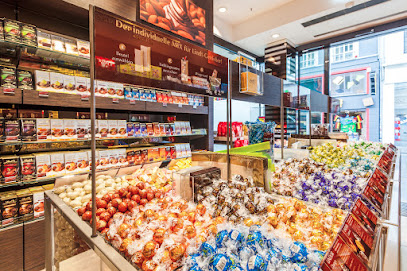
HUT.de Store Bonn
Explore HUT.de Store in Bonn for an exquisite selection of hats that blend style, comfort, and uniqueness, perfect for every fashion lover's collection.
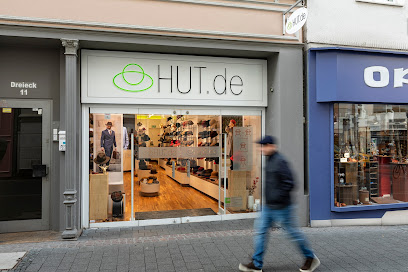
FOSSIL Store Bonn
Explore the exquisite FOSSIL Store in Bonn for timeless fashion accessories, watches, and luxury leather goods that embody elegance and style.
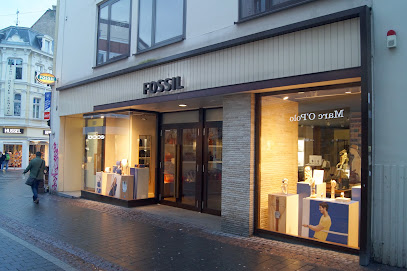
G-Star RAW Store
Explore the trendy G-Star RAW Store in Bonn for top-notch denim, stylish clothing, and fashionable accessories, all in one chic destination.
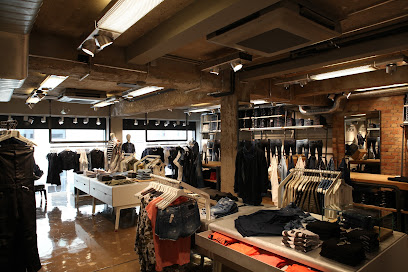
Blue Tomato Shop Bonn
Discover the ultimate skate and snowboard gear at Blue Tomato Shop Bonn, where sportswear meets community spirit and adventure awaits.
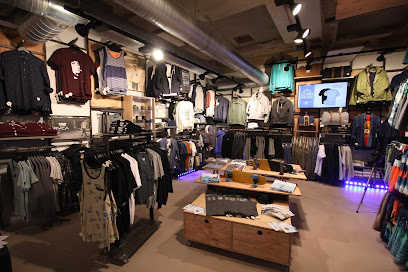
le SHOP Bonn Anne Herklotz
Explore the chic and stylish offerings at le SHOP Bonn, a boutique dedicated to women's fashion and unique accessories in the heart of the city.
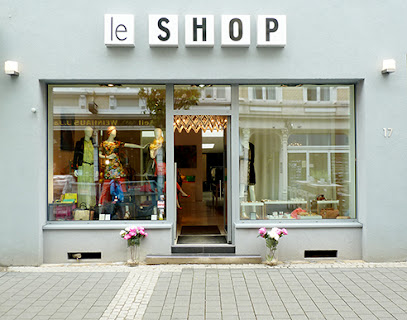
Essential bars & hidden hideouts
James Joyce - Bonn
Discover the vibrant atmosphere and authentic Irish cuisine at James Joyce - Bonn, a must-visit pub for every traveler in the city.
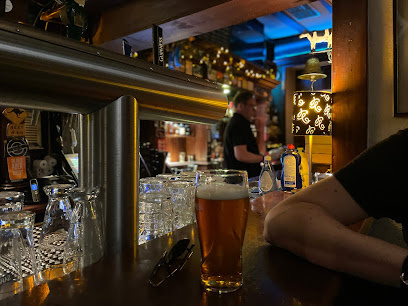
Shaker's
Experience the vibrant atmosphere of Shaker's, Bonn's top cocktail bar and lounge offering expertly crafted drinks and a welcoming ambiance.
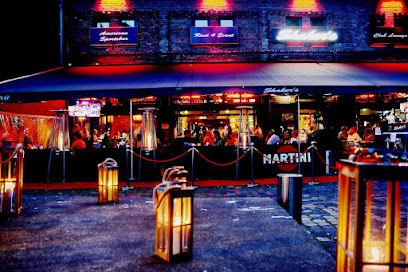
Dubliner Irish Pub Bonn
Discover the vibrant spirit of Ireland at Dubliner Irish Pub Bonn, where great food, drinks, and entertainment await every visitor.
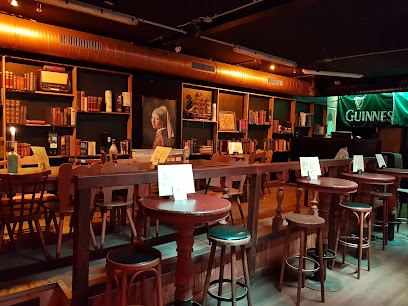
Die Wache
Experience Bonn's vibrant nightlife at Die Wache, a lively pub with affordable drinks and a welcoming atmosphere, perfect for socializing.
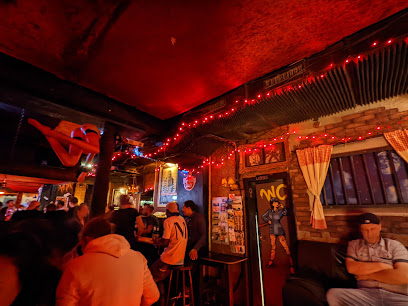
The Quiet Man
Experience the warmth of Irish hospitality at The Quiet Man, Bonn's beloved Irish pub offering traditional cuisine and a great selection of drinks.
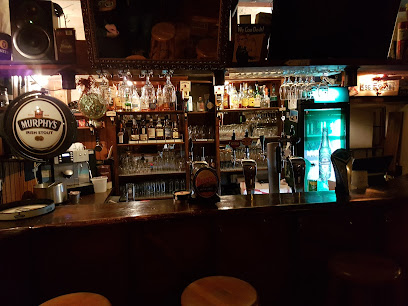
Bla
Discover the vibrant atmosphere of Bla, Bonn's premier bar, offering a unique blend of local nightlife and stylish ambiance for every visitor.
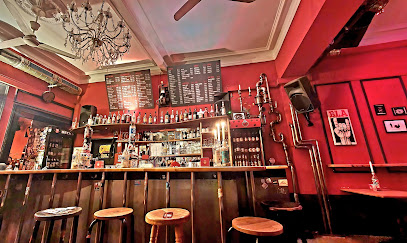
The Old Jacob - Bonn
Discover The Old Jacob in Bonn: A cocktail bar where creativity meets ambiance, offering innovative drinks in a vibrant atmosphere.
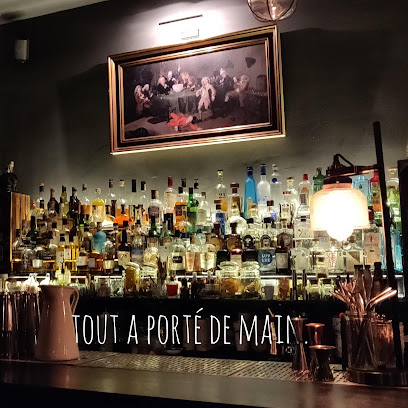
Flynn's Inn Whiskey Bar & Pub Bonn
Experience the warmth of Irish hospitality at Flynn's Inn Whiskey Bar & Pub in Bonn, featuring an extensive whiskey selection and lively entertainment.
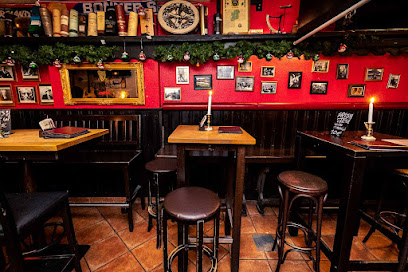
Tresor
Discover the heart of Bonn’s nightlife at Tresor, where excellent drinks and a vibrant atmosphere come together for an unforgettable experience.
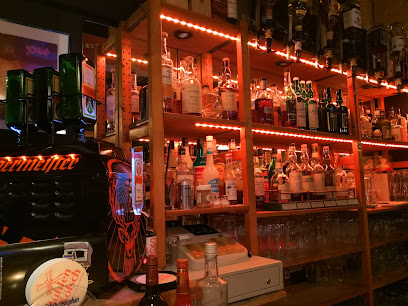
Che Guevara
Discover the vibrant atmosphere and eclectic cocktails at Che Guevara, Bonn's favorite bar for a lively night out.
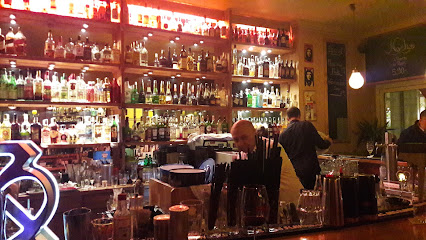
Namenlos - Bonn
Experience the unpretentious charm of Namenlos, Bonn’s favorite pub offering a cozy atmosphere and affordable drinks for every traveler.
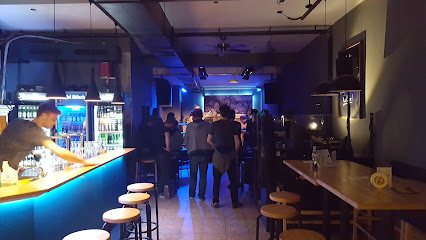
Strandbar Bonn
Discover the charm of Strandbar Bonn: a riverside bar offering refreshing drinks, live music, and stunning views of the Rhine River.
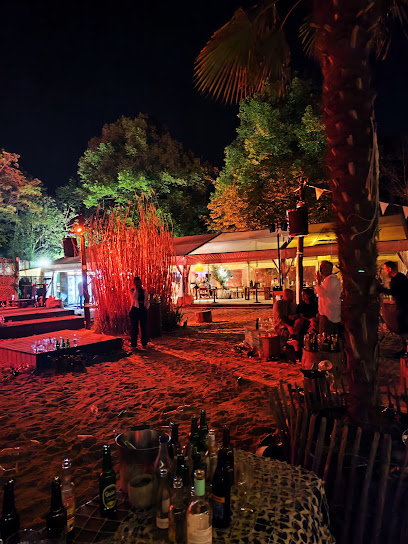
extra dry - Bonn
Discover the vibrant nightlife of Bonn at Extra Dry, a trendy bar with signature cocktails and a lively atmosphere.
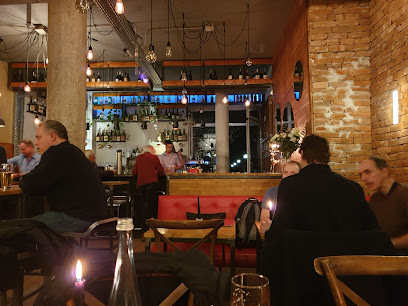
Zebulon - Bonn
Discover the lively atmosphere and delightful drinks at Zebulon, Bonn's favorite pub, where local culture and friendly service await you.
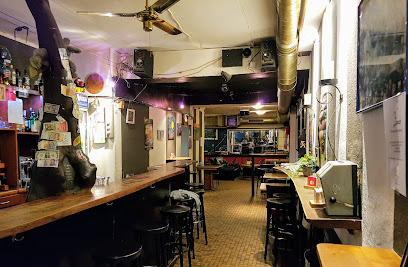
Babel - Bonn
Discover the lively ambiance and extensive drink selection at Babel - Bonn, your perfect night out in the heart of the city.
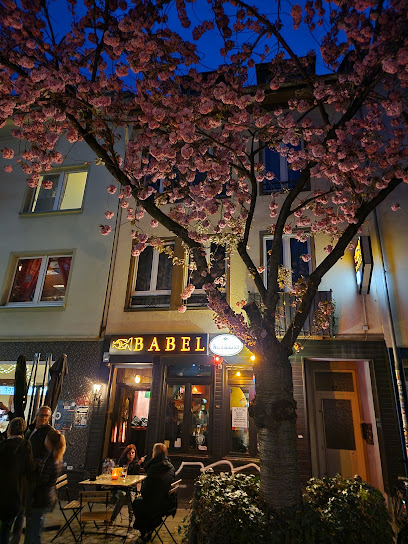
Local Phrases
-
- HelloHallo
[hah-loh] - GoodbyeAuf Wiedersehen
[owf vee-der-zay-en] - YesJa
[yah] - NoNein
[nine] - Please/You're welcomeBitte
[bi-teh] - Thank youDanke
[dahn-keh] - Excuse me/SorryEntschuldigung
[ent-shool-dee-goong] - How are you?Wie geht es dir?
[vee geht es deer] - Fine. And you?Gut. Und dir?
[goot oont deer] - Do you speak English?Sprechen Sie Englisch?
[shprek-en zee eng-leesh] - I don't understandIch verstehe nicht
[ikh fer-shteh-eh nikht]
- HelloHallo
-
- I'd like to see the menu, pleaseIch hätte gerne die Speisekarte, bitte
[ikh heh-te gern-eh dee shpahy-zeh-kahr-teh bi-teh] - I don't eat meatIch esse kein Fleisch
[ikh es-se kine flysh] - Cheers!Prost!
[prohst] - I would like to pay, pleaseIch möchte bitte zahlen
[ikh merkh-teh bi-teh tsah-len]
- I'd like to see the menu, pleaseIch hätte gerne die Speisekarte, bitte
-
- Help!Hilfe!
[hil-feh] - Go away!Gehen Sie weg!
[gey-en zee vehk] - Call the Police!Rufen Sie die Polizei!
[roo-fen zee dee poh-lee-tsai] - Call a doctor!Rufen Sie einen Arzt!
[roo-fen zee eye-nen ahrts] - I'm lostIch habe mich verirrt
[ikh hah-beh meesh feh-reert] - I'm illIch bin krank
[ikh been krunk]
- Help!Hilfe!
-
- I'd like to buy...Ich möchte kaufen...
[ikh merkh-teh kow-fen] - I'm just lookingIch schaue nur
[ikh shou-eh noor] - How much is it?Wie viel kostet das?
[vee feel kohs-tet dahs] - That's too expensiveDas ist zu teuer
[dahs ist tsoy too-er] - Can you lower the price?Können Sie den Preis senken?
[kew-nen zee den preys zeng-ken]
- I'd like to buy...Ich möchte kaufen...
-
- What time is it?Wie spät ist es?
[vee shpeht ist es] - It's one o'clockEs ist ein Uhr
[es ist iyn oor] - Half past (10)Halb elf
[halb elf] - MorningMorgen
[mohr-gen] - AfternoonNachmittag
[nahkh-mit-tahk] - EveningAbend
[ah-bent] - YesterdayGestern
[geh-stern] - TodayHeute
[hoi-teh] - TomorrowMorgen
[mohr-gen] - 1Eins
[ines] - 2Zwei
[tsvai] - 3Drei
[dry] - 4Vier
[feer] - 5Fünf
[foontf] - 6Sechs
[zeks] - 7Sieben
[zee-ben] - 8Acht
[ahkt] - 9Neun
[noyn] - 10Zehn
[tsayn]
- What time is it?Wie spät ist es?
-
- Where's a/the...?Wo ist ein/der...?
[vo ist iyn/dehr] - What's the address?Was ist die Adresse?
[vas ist dee ah-dreh-say] - Can you show me (on the map)?Können Sie es mir zeigen (auf der Karte)?
[kew-nen zee es meer tsay-gen (ouf dehr kahr-teh)] - When's the next (bus)?Wann kommt der nächste (Bus)?
[vann kohmt dehr nekhs-teh (boos)] - A ticket (to ....)Eine Fahrkarte (nach ....)
[iyn-eh fahr-kahr-teh (nahkh)]
- Where's a/the...?Wo ist ein/der...?
History of Bonn
-
Bonn's history stretches back over 2,000 years to its origins as a Roman settlement known as Bonna. The Romans established Bonna around 11 BC as a strategic military post along the Rhine River. The remnants of Roman walls and structures can still be found in the city, offering a glimpse into its ancient past.
-
During the medieval period, Bonn flourished as a significant religious and cultural center. The construction of the Bonn Minster, a magnificent Romanesque church, began in the 11th century. The church stands as a testament to the city's importance and architectural prowess during this era.
-
In the 16th century, Bonn became the residence of the Prince-electors of Cologne. This period saw the construction of grand buildings like the Electoral Palace, which now serves as part of the University of Bonn. The presence of the electors brought political and cultural prominence to the city.
-
Bonn is perhaps best known as the birthplace of Ludwig van Beethoven, one of the world's greatest composers. He was born here in 1770, and his childhood home, now the Beethoven House Museum, attracts visitors from around the globe, celebrating his life and musical legacy.
-
After World War II, Bonn gained international recognition as the provisional capital of West Germany in 1949. The city served as the seat of government until reunification in 1990. The political history of this period is preserved in various landmarks, including the Bundeshaus and the Chancellor's Bungalow.
-
Founded in 1818, the University of Bonn has played a significant role in the city's cultural and intellectual life. It has produced numerous notable alumni, including several Nobel laureates. The university's buildings and libraries are integral parts of Bonn's architectural and academic heritage.
-
Today, Bonn is a vibrant cultural hub, hosting numerous festivals, museums, and events. The annual Beethovenfest celebrates the city's most famous son with concerts and performances. The Museum Mile, including the Bonn Museum of Modern Art and the House of History, showcases Bonn's rich cultural tapestry.
Bonn Essentials
-
Bonn is well-connected to major cities in Germany and Europe. The nearest international airport is Cologne Bonn Airport (CGN), approximately 20 minutes away by train or car. Alternatively, Frankfurt Airport (FRA) is about an hour away by high-speed train. Bonn is also accessible by train, with frequent services from cities like Berlin, Munich, and Hamburg. If you're driving, the city is well-served by the German Autobahn network.
-
Bonn boasts an efficient public transportation system, including buses, trams, and trains. The Verkehrsverbund Rhein-Sieg (VRS) network covers Bonn and its surrounding areas. Tickets can be purchased at stations, online, or via mobile apps. Taxis and ride-sharing services like Uber are also available. For a more eco-friendly option, consider renting a bike; Bonn has an extensive network of bike lanes.
-
The official currency in Germany is the Euro (EUR). Credit and debit cards are widely accepted, but it's advisable to carry some cash for smaller establishments or markets. ATMs are plentiful, and foreign cards are generally accepted. Contactless payments are also becoming more common.
-
Bonn is generally a safe city, but like any urban area, it's important to stay vigilant. Avoid secluded areas at night and keep an eye on your belongings in crowded places. Be cautious in neighborhoods like Tannenbusch and Duisdorf, which have higher crime rates. Always use well-lit, busy streets when walking at night.
-
In case of emergency, dial 112 for medical services, fire brigade, and police. English-speaking operators are usually available. Bonn has several hospitals and clinics, including the University Hospital Bonn. Pharmacies are widely available, and many have 24-hour service. It's advisable to have travel insurance that covers medical emergencies.
-
Fashion: Do dress smart-casual in most settings; Germans appreciate neatness. Avoid overly casual attire like flip-flops and tank tops in restaurants. Religion: Do respect religious customs; many churches require modest dress and silence. Public Transport: Do validate your ticket before boarding. Don't occupy priority seats meant for the elderly or disabled. Greetings: Do shake hands when greeting someone. A friendly 'Guten Tag' is appreciated. Eating & Drinking: Do try local specialties like Rheinischer Sauerbraten and Kölsch beer. Don't leave a tip on the table; hand it directly to the server.
-
To experience Bonn like a local, visit the Wochenmarkt on Münsterplatz for fresh produce and local delicacies. Take a leisurely stroll along the Rhine promenade and enjoy a coffee at one of the riverside cafes. For a cultural experience, attend a concert at the Beethovenhalle or visit the annual Beethovenfest. Don't miss the chance to explore the city's numerous parks and green spaces, such as the Rheinaue Park.
Trending Landmark in Bonn
-
Schloss Drachenburg
-
House of the History of the Federal Republic of Germany
-
Beethoven-Haus Bonn
-
Museum Koenig Bonn
-
Botanical Garden, Bonn
-
Stadtbefestigung Alter Zoll Bonn am Rhein
-
Kunst- und Ausstellungshalle der Bundesrepublik Deutschland
-
Waldau
-
Beethoven-Denkmal
-
Art museum
-
Minster of St. Martin's
-
Deutsches Museum Bonn
-
LVR-LandesMuseum Bonn
-
Poppelsdorf Palace
-
Kurfürstliches Schloss
Nearby Cities to Bonn
-
Things To Do in Cologne
-
Things To Do in Koblenz
-
Things To Do in Dusseldorf
-
Things To Do in Aachen
-
Things To Do in Essen
-
Things To Do in Spa
-
Things To Do in Maastricht
-
Things To Do in Clervaux
-
Things To Do in Liege
-
Things To Do in Vianden
-
Things To Do in Echternach
-
Things To Do in Genk
-
Things To Do in Diekirch
-
Things To Do in Wiltz
-
Things To Do in Durbuy













